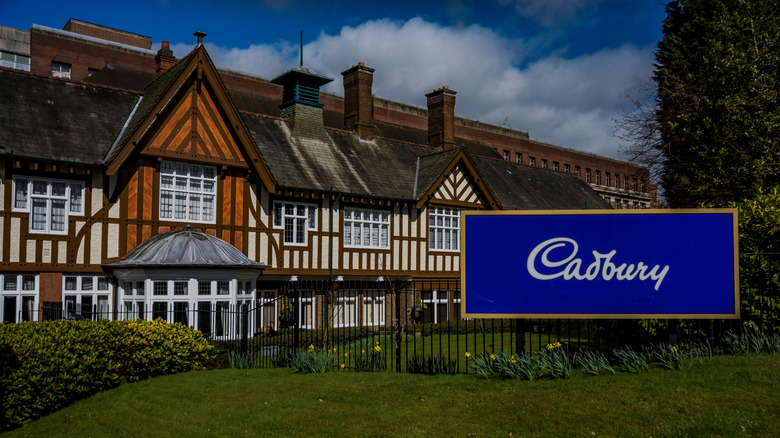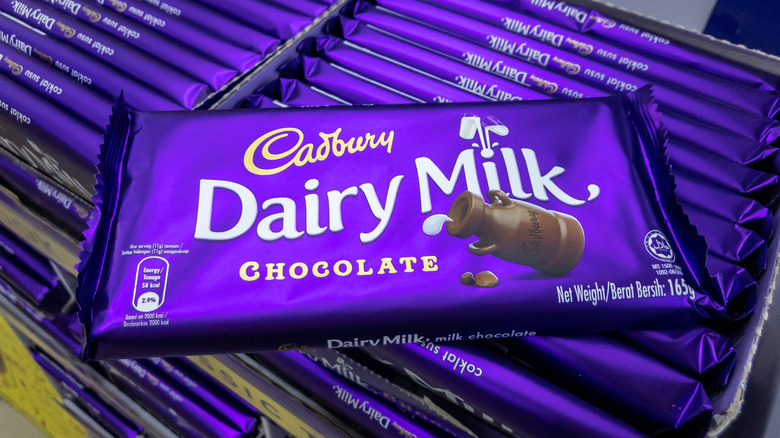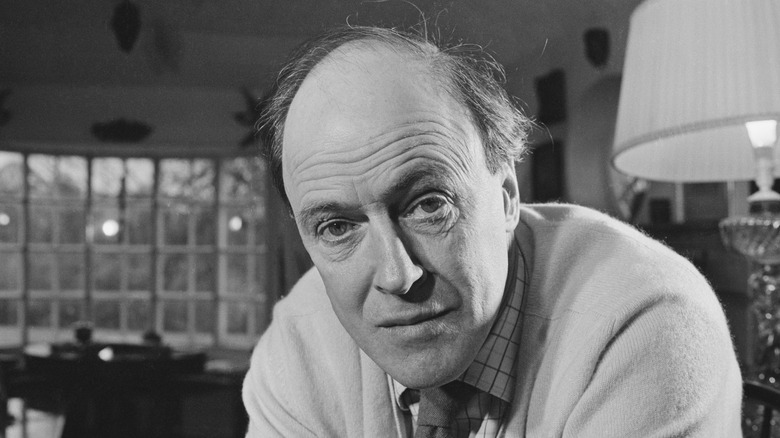Cadbury Is The Real Factory Behind Roald Dahl's Willy Wonka Books
Whether it's through Gene Wilder, Johnny Depp, or the original book, many of us know about Willy Wonka and his marvelous chocolate factory. Debatably Roald Dahl's most popular piece of work, "Charlie and the Chocolate Factory" was first published in the United States in 1964. Interestingly enough, Britannica reveals that the book was not available in Dahl's native Britain until 1967 due to its "streak of cheerful gruesomeness." You know, like the parts where a slave-owning chocolatier has a group of minors turned into food, dumped into the garbage, and shrunk to pocket size, all in a factory that nobody else ever enters or exits, including the health inspector.
But that's all part of the fun, isn't it? For all its grizzly elements, the story still manages to be immensely heartwarming. The good kid wins, the maimed and mangled children were nasty, to begin with, and the magical world of Willy Wonka's factory and its river of chocolate leaves an indelible mark in the minds of all who discover it. In the years since the book was first published, various efforts have been made to bring some of its magical elements to life. Nestlé launched a line of Wonka candy (joining other food products inspired by movies), and scientists have achieved Wonka-like feats such as inventing melt-resistant ice cream. What may surprise you is that this fanciful story actually had its roots in real-life, stemming from Dahl's personal love of Cadbury chocolate.
The history of Cadbury chocolate
Strange though it may sound, Cadbury chocolate has its roots in the Quaker movement. According to the company, founder John Cadbury started selling cocoa and drinking chocolate in 1824 because he saw them as healthy alternatives to alcohol, which Quakers strongly disapproved of. At this time, chocolate bars hadn't even been invented yet. That wouldn't happen until 1847, thanks to fellow British chocolate mongers Fry & Sons. In an interesting twist, Cadbury would go on to see such great success that the company would purchase Fry's in 1919. But before that could happen, one more achievement was needed. In 1904, John's grandson George Cadbury Jr. invented Cadbury Dairy Milk, the brand's signature milk chocolate.
Throughout its nearly two-century history, the Cadbury company has accomplished things no other chocolatiers can lay claim to. The brand has close ties to the British royal family that date back to 1852 when the enterprise that John Cadbury and his brother Benjamin started received a Royal Warrant to make cocoa and chocolate products for Queen Victoria (via The Chocolate Museum). The Guardian further reveals that, during the reign of Elizabeth II, Cadbury used a special machine and a secret recipe to manufacture dark chocolate exclusive to the royals (reportedly wrapped in gold, of course). As for a Cadbury achievement that we commoners can enjoy, Smithsonian Magazine notes that the company claims to have invented the heart-shaped chocolate box so closely associated with Valentine's Day.
How Cadbury inspired Roald Dahl
Roald Dahl's ties to Cadbury go back to 1929 when, at the age of 13, he enrolled in Repton School, a boarding school in South Derbyshire, England. According to Biography, Cadbury used Repton students as a test audience for their latest chocolate creations. This meant free candy for Dahl, but it also sparked his imagination to a profound extent. He once said in a speech, "I realized that inside this great Cadbury's chocolate factory there must be an inventing room, a secret place where fully-grown men and women in white overalls spent all their time playing around with sticky boiling messes, sugar and chocs, and mixing them up and trying to invent something new and fantastic." Dahl said he dreamed that "Mr. Cadbury" would bring him on as a business partner, bringing him fabulous riches. Sound familiar?
There was another aspect of "Charlie and the Chocolate Factory" rooted in Cadbury's history, namely the existence of spies sent by rival chocolatiers to steal Willy Wonka's inventions. Slate reveals that during the very years that Dahl was falling in love with chocolate, Cadbury and rival company Rowntree routinely sent undercover agents to work in each other's facilities. Elsewhere in Europe, chocolatiers were hiring private detectives to spy on their competitors. When Dahl reached adulthood, he realized that the candy business, like so many others, was less about imagination and more about earnings, something he greatly resented, and sought to critique in the form of Wonka's pernicious rivals.


